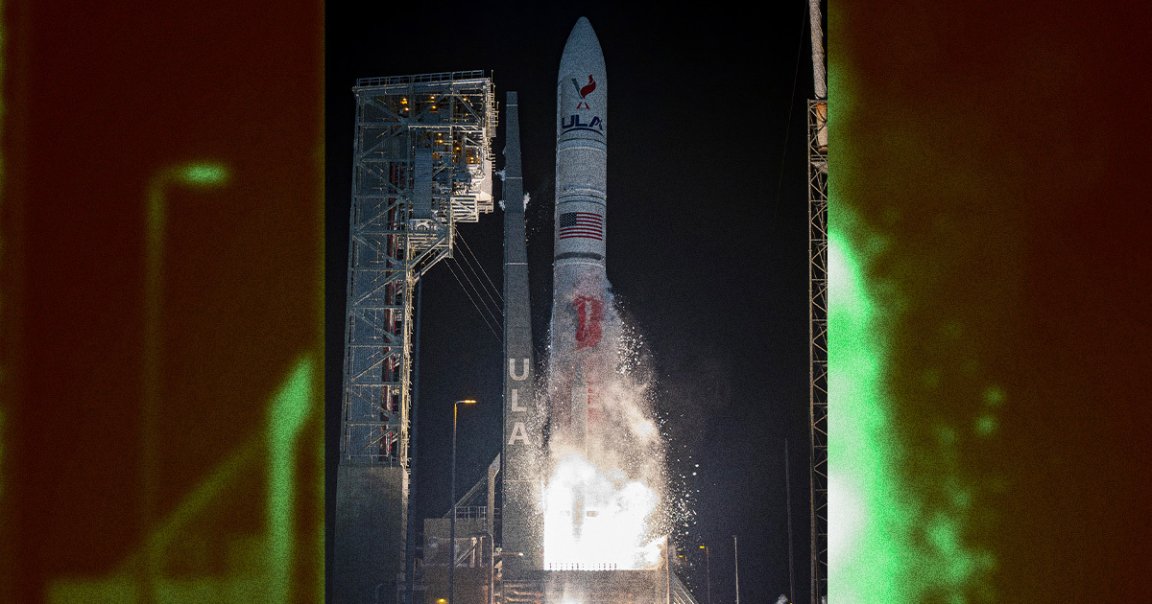
Critical Support
NASA’s first shot at launching a Moon lander in over 50 years seems almost certainly like it’s not going to make it, given another update claiming the lander has suffered a “critical” injury.
In a press statement posted on X-formerly-Twitter, the Pittsburgh-based Astrobotic spaceflight company said that its NASA-funded Peregrine lander, which took off from Cape Canaveral earlier today on the maiden voyage of United United Launch Alliance’s Vulcan rocket, had experienced a “critical loss of propellant.”
News of this issue comes after a previous post-launch update about a communications “anomaly” that seemed to signal serious trouble.
“The team is working to try and stabilize this loss, but given the situation, we have prioritized maximizing the science and data we can capture,” the press release reads. “We are currently assessing what alternative mission profiles may be feasible at this time.”
Reading between the lines of space-speak, it seems a lot like Astrobotic is admitting that this iteration of the small Peregrine lander — which contains among its payloads a physical Bitcoin, a piece of Mount Everest, and some of “Star Trek” creator Gene Roddenberry’s remains — is going to be lost in space and never reach the Moon.
Back to the Launchpad
Sponsored by NASA’s Commercial Lunar Payload Services (CLPS) program, the Peregrine lander was supposed to be the first of five commercial spaceflight missions contracted by the agency to deliver payloads onto the Moon’s surface. It was also, if successful, going to be the first commercial craft to ever touch down on the lunar surface, and the first time any United States-based craft had landed on the Moon in over 50 years.
Though Astrobotic is far from a household name, it has deep roots with NASA that make this all-but-certain mission failure all the more tragic. Nearly a decade ago, the agency announced that Astrobotic was one of three private sector partners selected to develop lunar landers, and the craft was dubbed “Peregrine” in 2016 as the company began preparing it for the long road to launch.
While these sorts of things happen all the time — just ask SpaceX! — it’s still a blow against the start of NASA and the United States’ big Moon year. The rest of the year will see the scheduled launches of two other CLPS crafts and, if all goes according to plan, the second phase of the Artemis mission that will see four astronauts traveling for the first lunar flyby since the 1970s.
In its own statement posted to X, NASA affirmed Astrobotic’s achievements and rationalized that “each mission is an opportunity to learn.” That’s a very kind way of saying that failure is a learning experience, and hopefully whatever this teachable moment brings to Astrobotic will make forthcoming launches work go more smoothly.
More on the Moon: Man Sending His DNA to the Moon So Aliens Can Clone Him and Put Him in a Zoo